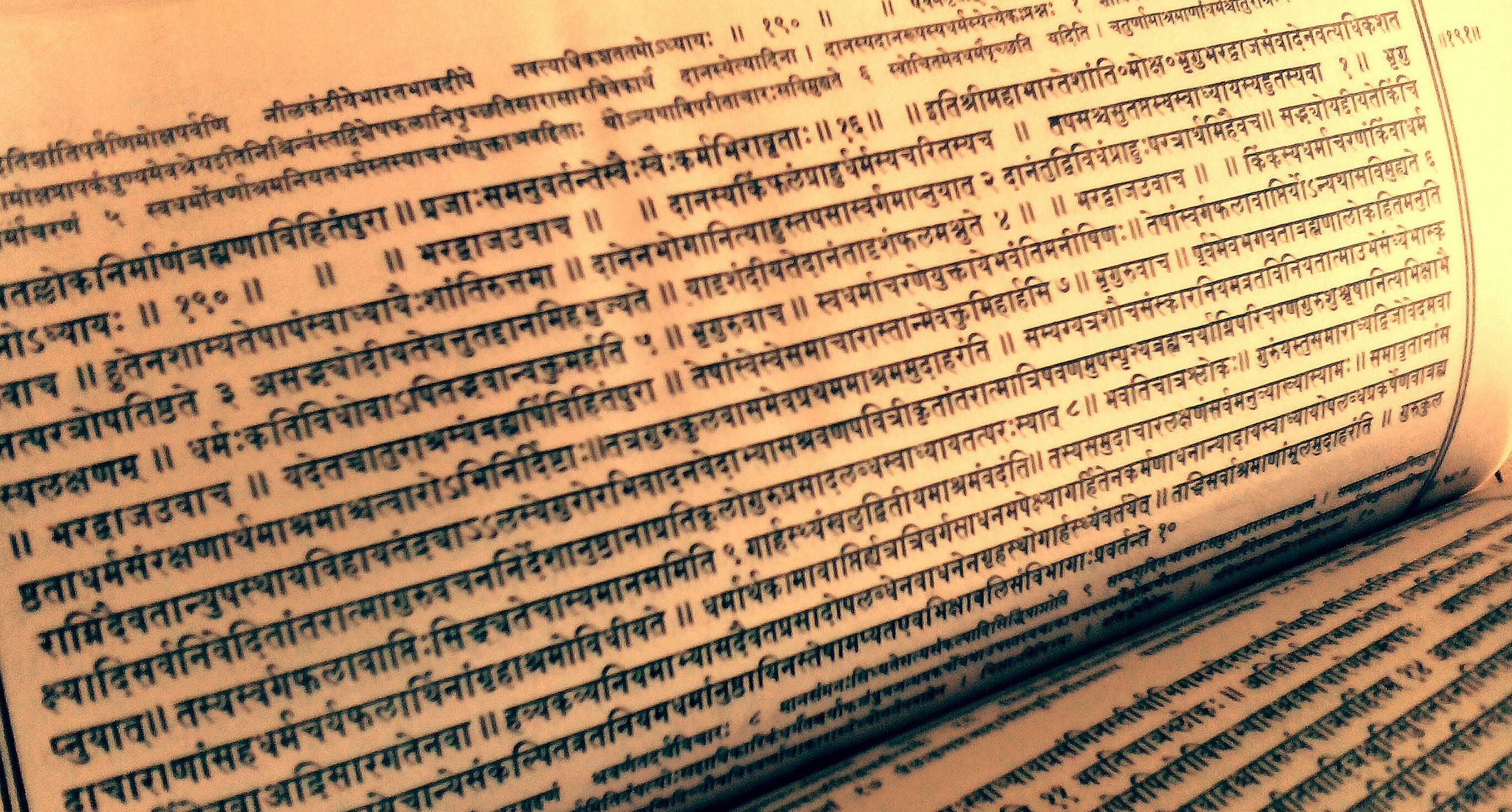Sanskrit
SANSKRIT is being offered in the 2023-24 year.
For the 2023-24 year, the course will be in-person at AV���ֲ� and synchronous online for Memorial students.
FALL (SEPT-DEC) 2023
| AV���ֲ� RELS 1600 / CLAS 1600 M W F 0935-1025 Atlantic (Halifax) McCain Arts & SS 1184���������������� |
Memorial University |
WINTER (JAN-APR) 2024
| AV���ֲ� RELS 2600 / CLAS 2600 M W F 1035-1125 Atlantic (Halifax) McCain Arts & SS 1184���������������� |
Memorial University |
Note that Sanskrit can be taken under either RELS (Religious Studies) or CLAS (Classics) numbers.

��
WHY study Sanskrit?
Sanskrit is the language of South Asia's ancient religious and philosophical culture. More than 3000 years old, it is indispensable for any proper understanding of Hinduism, yoga, tantra, or Jainism. As a parent of Pali and the stock language of Mahāyāna and tantric scriptures, it is fundamental to most Buddhist traditions of the world today, particularly South Asian, Tibetan, and East Asian. Like its Indo-European cousin Latin, Sanskrit remained a standard medium of philosophical, medical, scientific, theological, and legal discourse for centuries, and is a parent tongue of Bengali, Hindi, Marathi, Gujarati and other contemporary South Asian languages spoken by hundreds of millions of people today.
The word "����ṃs��ṛt��" means polished, well-made or perfectly constructed, and those who study it often credit Sanskrit with a special power to sharpen and clear the mind. Even one year of study greatly improves one's understanding of grammar and language in general ― including one's own mother tongue, whatever it may be.

WHO takes a class like this?
Sanskrit tends to attract those engaged and interested in:
·���������������� history, religion and culture of South Asia
·���������������� study and practice of Hinduism
·���������������� study and practice of Buddhism, particularly Mahāyāna, Tantric and Tibetan Buddhism
·���������������� ancient Greek, Latin and Indo-European languages and literature
·���������������� study, teaching and practice of Yoga and Tantra
·���������������� South Asian literature and storytelling
·���������������� South Asian philosophy such as Advaita Vedānta or Mādhyamika Buddhism
·���������������� study of contemporary South Asian languages such as Hindi, Marathi and Bengali
·���������������� study and practice of Jainism
·���������������� music, dance and performing arts traditions of South Asia

WHO will teach it?
, Dept. of Classics - Religious Studies. Dr. Austin has taught Introductory and Intermediate Sanskrit at AV���ֲ� and McMaster University, and has taught Religions of India, Tibet, China and Japan at AV���ֲ� since 2009.

��
WHAT will we study?
The fall course begins with the Devanāgarī script, pronunciation and phonetic system, simple nominal and pronominal forms, present tense conjugation and basic grammatical concepts. By December we will be able to read simple sentences in Devanāgarī aloud (with proper pronunciation!) and understand all the basic grammar of its nouns, pronouns and verbs.
The winter half develops this grammar further, introducing a broader range of verb tenses and forms, participial formations, and compounds. By April we will have built a familiarity with and command of all the elementary conventions and structures of Sanskrit writing, as well as an intimacy with the cultural and religious environment in which it emerged.
Textbook: Ruppel, Antonia. 2017. The Cambridge Introduction to Sanskrit. Cambridge University Press. ISBN 978-1-107-45906-9 Paperback.
If you have any questions please contact����at christopher.austin@dal.ca. We hope to see you in September!


��
��
